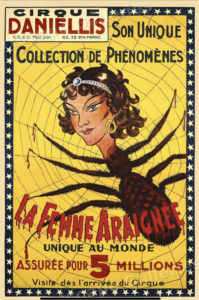 It’s a good time to be a pundit trying to find a vein of gold that explains the polarization of modern America. Is it political, societal, sociological, psychological, economic, or some mixture of all of the above? Take David Brooks’ new Atlantic essay on bobos and boubours. Here we have modern politics emerging from social, economic, and meritocratic trends that build on his riff on Richard Florida’s ideas of the creative class in the early 2000s. I’ll sum it up as simply as I can, though I also want to touch on why it seems flawed to me. But here we go:
It’s a good time to be a pundit trying to find a vein of gold that explains the polarization of modern America. Is it political, societal, sociological, psychological, economic, or some mixture of all of the above? Take David Brooks’ new Atlantic essay on bobos and boubours. Here we have modern politics emerging from social, economic, and meritocratic trends that build on his riff on Richard Florida’s ideas of the creative class in the early 2000s. I’ll sum it up as simply as I can, though I also want to touch on why it seems flawed to me. But here we go:
- An intellectual elite arose that controls media, educational opportunities, technology, and culture (the “bobos” for bourgeois bohemian).
- Our politics (and some international as well: Marine Le Pen, Boris Johnson, etc.) reflect a backlash against these new overlords by the “boorish bourgeoisie” (boubours) who see their political voices suffocated in this new class order.
- Maybe if we mixed together a bit more we can reduce the temperatures and empathize with one another better.
OK, so Brooks is on that solution bandwagon that always reaches for more social integration to solve all ills. It is positive and very bobo (I doubt he would disagree given his self-confessional acknowledgement of his own status as part of the creative class in the article.) We have seen calls for less assortative mating, more bipartisan dinner parties for congresspeople, and other ideas in the past.
All very positive, agreed.
But what if the real problem is more sinister? How about the idea that many people are being manipulated by con artists with respect to the things that should matter to them?… Read the rest